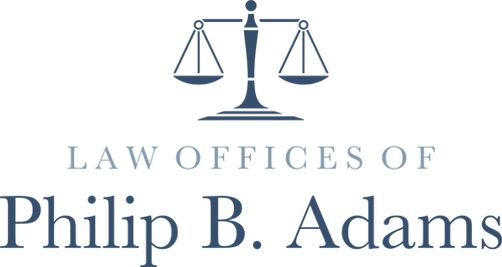Law Offices of Philip B. Adams
- Home
- About Us
-
Practice Areas
-
Criminal Defense
>
- Violent Crimes >
- Sex Crimes >
- Property Crimes (Home Invasion, Burglary, Looting, Trespassing)
- Accounting, Fraud, and Forgery Crimes
- Weapons and Firearms crimes
- DWI/DUI and other traffic violations
- Cruelty to Animals crimes
- White collar crimes
- Appeals
- Post-Conviction Relief
- Expungements
- Protective orders
- Juvenile delinquency charges
- Personal Injury >
-
Criminal Defense
>
- Blog
- Recent Cases
- Media
- Contact Us
(318) 230-7199
Law Offices of Philip B. Adams, LLC
400 Travis Street, Suite 1109
Shreveport, LA 71101
Law Offices of Philip B. Adams, LLC
400 Travis Street, Suite 1109
Shreveport, LA 71101
© 2019-2020 Law Offices of Philip B. Adams, LLC | All Rights Reserved
DISCLAIMER:
Material presented on the Law Offices of Philip B. Adams (hereinafter “the Firm”) website is intended for informational purposes only. It is not intended as professional advice and should not be construed as such. The Firm is not engaged in rendering legal or other professional services by posting said material.
No Attorney-Client Relationship is created by your use of this website. Neither your receipt of information from this website nor your use of this website to contact the Firm or one of its lawyers creates an attorney-client relationship between you and the Firm.
No Confidentiality. You may not use this website to provide confidential information about a legal matter that you have to the Firm. Your use of this website does not make you a client of the firm or even a prospective client of the Firm. If you have confidential information that you would like to give to any lawyer at the Firm, please communicate with one of the Firm’s lawyers in person or by telephone–not by filling in any form on this website or by sending an unsolicited email to the Firm or any of its lawyers.
Material presented on the Law Offices of Philip B. Adams (hereinafter “the Firm”) website is intended for informational purposes only. It is not intended as professional advice and should not be construed as such. The Firm is not engaged in rendering legal or other professional services by posting said material.
No Attorney-Client Relationship is created by your use of this website. Neither your receipt of information from this website nor your use of this website to contact the Firm or one of its lawyers creates an attorney-client relationship between you and the Firm.
No Confidentiality. You may not use this website to provide confidential information about a legal matter that you have to the Firm. Your use of this website does not make you a client of the firm or even a prospective client of the Firm. If you have confidential information that you would like to give to any lawyer at the Firm, please communicate with one of the Firm’s lawyers in person or by telephone–not by filling in any form on this website or by sending an unsolicited email to the Firm or any of its lawyers.
Website by Hemingway West

 RSS Feed
RSS Feed
